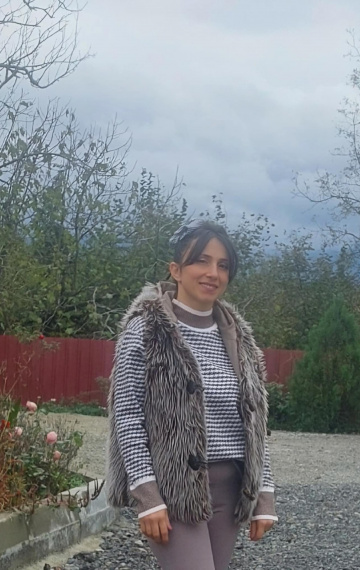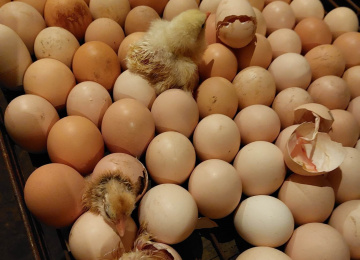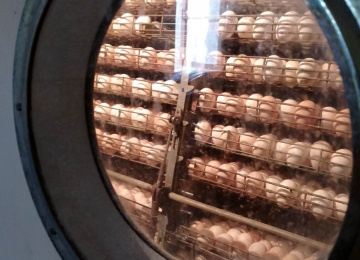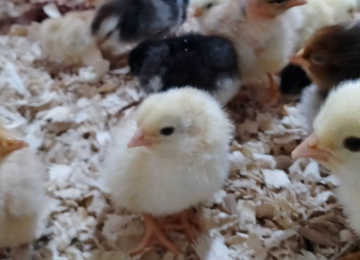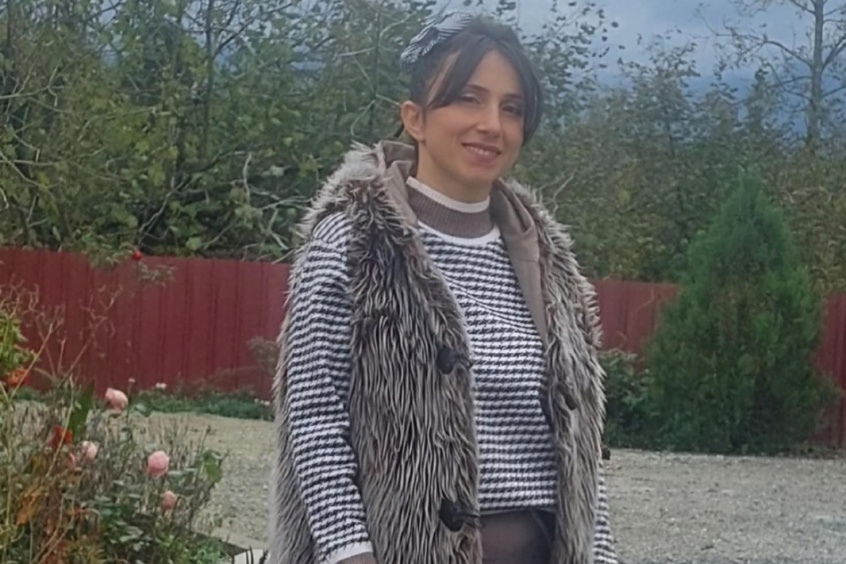
At 29, Medea Tevzadze, a mother of four, transformed a challenge into an opportunity for her family, despite not seeing herself as an entrepreneur. It all started in 2019 when her mother-in-law, Gulnara Janashia, who had prior experience in subsistence poultry farming, decided to transform her efforts into a sustainable mid-level business.
A long way to go
Each year, Janashia ensured her family had a steady supply of high-quality chicken meat and eggs. Soon, she recognized a growing demand for these products in her community, and decided to expand her production to provide locally sourced poultry.
To meet this market demand, she gathered eggs from her farm in the village of Amagleba, in the Guria region of western Georgia, and transported them more than 30 kilometres to an industrial incubation centre in Samtredia (Imereti region) for hatching. To care for the newly hatched chicks, her family constructed a chicken coop on a 200-square-metre land plot. The project quickly exceeded expectations, as successful sales generated income that was reinvested into expanding the poultry farm and acquiring essential equipment. Janashia’s plan included producing 10,000 eggs annually and maintaining a flock of 150 chickens, both egg layers and broilers.
However, transporting eggs from Guria to Imereti and bringing the hatched chicks back posed a major challenge, resulting in wasted time, increased costs, and resource inefficiencies. The family needed to find a solution.
A step forward
To help her family cut costs and boost income, Janashia’s daughter-in-law, Medea Tevzadze, proposed building a medium-sized incubator on-site. But purchasing the incubator required a significant financial investment that the family simply couldn’t afford.
Fortunately, a local non-governmental organization "Women for Women" helped them become involved in the project "Catalysing Economic and Social Life" (CESL), which is funded by the European Union as a component of the EU4Business initiative under the EU4ITD and the German government, and implemented by the German International Cooperation GIZ. With the project’s support, the family bought an incubator and dryer capable of handling 5,000 eggs.
“Our expenses have decreased,” says Tevzadze. “Previously, we had to pay for both the eggs and the hatched chicks. Now, we only pay for the eggs and can care for them as we wish. We’re very happy with the change.”
To ensure the successful hatching of the first chicks in the incubator and to oversee operations effectively, Janashia, the mother-in-law, sought help from the community and employed three local women.
“Raising chicks in an incubator requires staying up all night to flip the eggs every two hours and ensure the light stays on to keep them warm. It’s hard work,” says Tevzadze.
The CESL project aims to enhance the income sources of people in four regions of Georgia (Guria, Imereti, Kakheti, and Racha-Lechkhumi and Kvemo Svaneti). This initiative will help reduce migration to the capital, Tbilisi, and encourage more people to remain in or move to these regions.
With the support of the project, Tevzadze and her family now have the potential to breed chickens three times a year, sell them, employ their neighbours, and contribute to the economic growth of their community.

